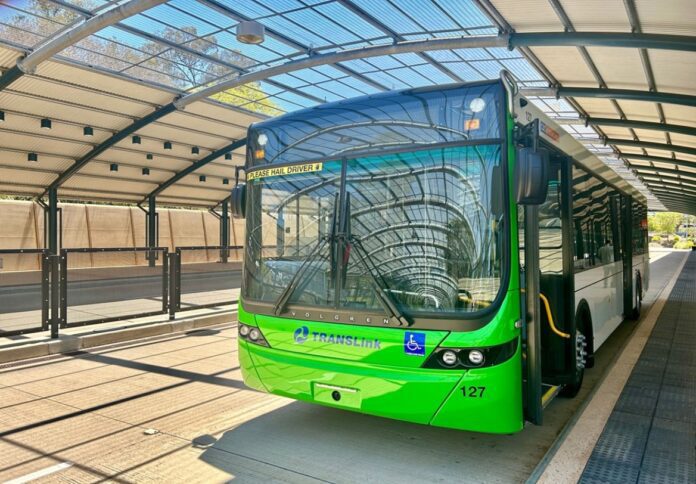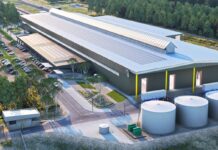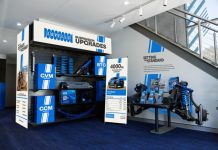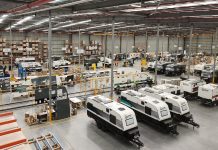
The Queensland Government announced the preferred manufacturers for the construction of 200 rail replacement buses, aiming to strengthen the local manufacturing sector in the region.
Scania Australia Pty Ltd and Volvo Group Australia Pty Ltd have been appointed as the preferred builders following a thorough independent procurement process, the government said in a media statement.
The substantial initial investment of $133.8 million underscores the government’s dedication to fostering local manufacturing jobs, skills, and training.
The decision to build the buses in Queensland aims to support the state’s economy while ensuring the public transport needs of Southeast Queensland (SEQ) are met efficiently.
The first bus is slated for delivery in March 2024, with the full complement of 200 buses expected to be in service by the end of the same year.
These buses will play a crucial role in facilitating seamless travel for SEQ public transport users during track closures on the train network.
Currently, the Department of Transport and Main Roads (TMR) collaborates with contracted bus operators to secure rail replacement buses during track closures.
The new initiative involves TMR taking ownership of the buses, allowing for more flexible deployment across SEQ during train network disruptions.
As the Cross River Rail project necessitates rolling track closures in 2024 for critical works, these buses will play a pivotal role in minimizing commuter impacts.
The focus on accessibility is evident in the design, ensuring that the buses cater to all passengers, including those with wheelchairs, luggage, or prams.
Transport and Main Roads Minister Mark Bailey highlighted that the primary beneficiaries of the initiative are local manufacturers and workers who will be constructing buses in Queensland specifically for the state’s residents.
“These buses will play an important role in keeping South East Queenslanders moving during the next few years while major projects such as Cross River Rail and Logan and Gold Coast Faster Rail are integrated into the existing train network,” Bailey noted.
The minister stated that the Queensland Government’s massive undertaking is centered on forward planning and anticipating the needs of the traveling public with minimal disruption.
With the procurement process concluded, he expressed that it is now time to proceed with the job and deliver for Queensland.
Volgren CEO Thiago Deiro commented on the project’s significance for Volgren’s Eagle Farm production facility, foreseeing its substantial impact on job creation and skills retention.
“Besides being locally manufactured in Brisbane, Volgren buses are predominantly made using locally supplied parts and components, creating a circular economy, benefiting the local supply chain, and creating amazing job opportunities for the communities where we are involved,” Deiro explained.
Meanwhile, Bustech CEO Dan Marks expressed delight in being awarded buses in partnership with Scania as part of the rail replacement program.
“BusTech welcomes the investment in local bus manufacturing and looks forward to this continuing over the next decade as Queensland transitions to zero-emission buses for public fleets and in the lead up to the Brisbane Olympics,” Marks stated.
To date, TMR is actively prioritising infrastructure development to support charging capabilities for zero-emission buses at depots across SEQ.
According to the government, the commitment remains strong, with all new Translink-contracted buses in SEQ expected to be zero-emission vehicles by 2025.
Once the supporting infrastructure is in place, the contract allows for flexibility to procure electric buses under this arrangement.




















